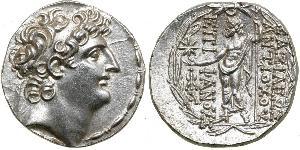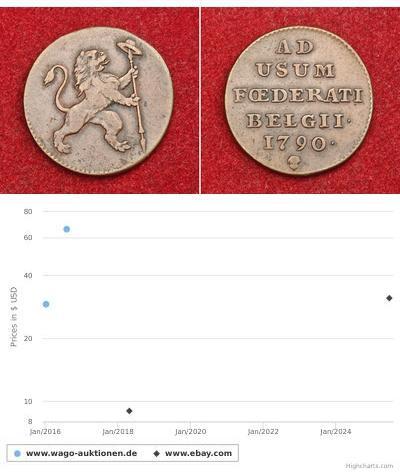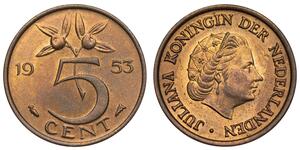1 Tetradramma (Venduta per $710.0)
Seleucid Kings of Syria, Alexander I Balas (149/148 BC) AR Tetradrachm Coin. R!
Mint Place: Antioch
Mint Period: 149/148 BC (Year 164)
Denomination: AR Tetradrachm (Four Drachmai)
Reference: SC 1782.2d; DCA 118; HGC 9, 875a. R!
Condition: Lightly cleaned, traces of corrosion in reverse and light deposits, otherwise XF!
Weight: 16.19gm
Diameter: 29mm
Material: Silver
Obverse: Diademed head of Alexander I Balas right. Decorative border around.
Reverse: eus Nikephoros seated left; monograms to outer and inner left. Date ("ΔΞP" = year 164) in exergue.
Legend: BAΣIΛEΩΣ AΛEΞANΔPOY / ΘEOΠATOPOΣ EYEPΓETOY
The tetradrachm (Greek: τετράδραχμον) was an Ancient Greek silver coin equivalent to four drachms. It was in wide circulation from 510 to 38 BC. The currency's use was also popular in Greek-influenced areas of present-day Persia and India.
em>.
Alexander Balas (Ancient Greek: Ἀλέξανδρoς Bάλας), ruler of the Greek Seleucid kingdom in 150–146 BC, was a native of Smyrna of humble origin, but gave himself out to be the son of Antiochus IV Epiphanes and Laodice IV and heir to the Seleucid throne. Along with his sister Laodice VI, the youngster Alexander was "discovered" by Heracleides, a former minister of Antiochus IV and brother of Timarchus, an usurper in Media who had been executed by the reigning king Demetrius I Soter.
Alexander's claims were recognized by the Roman Senate, Ptolemy Philometor of Egypt and others. He married Cleopatra Thea, a daughter of the Ptolemaic dynasty. At first unsuccessful, Alexander finally defeated Demetrius Soter in 150 BC. Being now master of the empire, he is said to have abandoned himself to a life of debauchery. Whatever the truth behind this, the young king was forced to depend heavily on his Ptolemaic support and even struck portraits with the characteristic features of king Ptolemy I.
Demetrius Soter's son Demetrius II profited by the opportunity to regain the throne. Ptolemy Philometor, who was Alexander's father-in-law, went over to his side, and Alexander was defeated in the battle of Antioch (145 BC) in Syria, sometimes known as the battle of the Oenoparus.
He fled for refuge to a Nabataean prince, who murdered him and sent his head to Ptolemy Philometor, who had been mortally wounded in the engagement.

|
Postato da:
anonymous 2014-03-21 |
|
||
|
||
|
||
|
||
5 Cent Regno dei Paesi Bassi (1815 - ) Bronzo
il gruppo ha 7 monete / 7 prezzi
⇑

-600-300-Fu8Kb0OMN0EAAAFEG1tuUOVA.jpg)

-300-150-SXMKbzbiYkMAAAFLfijk0Ljz.jpg)
 Deutsch
Deutsch Русский
Русский Українська
Українська English
English Italiano
Italiano Français
Français Español
Español 汉语
汉语






-300-150-VITBwcI0OHQAAAEqPTlDRaZv.jpg)






